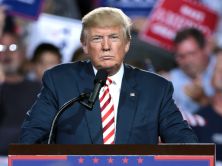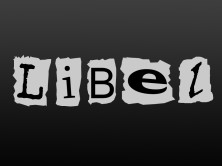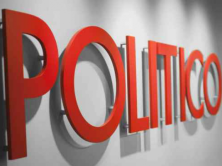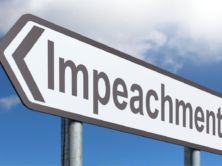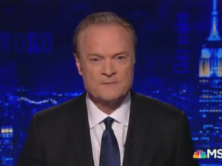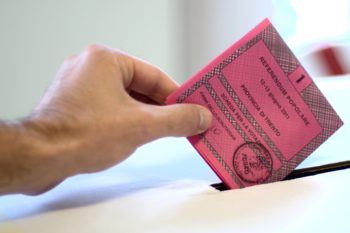
(Credit: Niccolò Caranti/WIkipedia)
With many politicians falling over themselves in an effort to join the gay marriage movement, we might expect that most Americans today would support a referendum on that issue. But Nate Silver, the statistical guru who was uncannily accurate in aggregating polls during the past two presidential elections, suggests that such a referendum would not be a slam dunk.
Based on a summary of eight polls this year on same-sex marriage (results are all archived at The Polling Report), Silver computes an average of 51.0% of Americans in support and 42.5% in opposition.
The variation among polls is significant – from a high of 58% by ABC and the Washington Post to a low of 46% by Fox, 47% by Quinnipiac, and 49% by Pew. (One reason for the variation, as I’ve argued before, is that a significant number of respondents don’t have strong opinions on the issue, and are thus influenced by the way the question is framed or by the other questions included in the poll.)
Given this variation, which percentage of support would most likely be reflected in an actual referendum? The answer to that question is not clear. Silver’s public opinion model to predict voting suggests that the percentage would be lower than the average of the polls. That’s because voters tend to be more conservative than the public as a whole. Thus, his model’s prediction for a national ballot measure in 2012 shows just 48.3% support for gay marriage.
But the trend is definitely upward, and by 2016, Silver predicts a national ballot measure would show 54.4% support, and by 2020 the support would be at 60.5%.
In fact, by 2020, his model suggests that statewide ballot measures on gay marriage would succeed in 44 states and the District of Columbia, with only South Carolina, Arkansas, Georgia, Louisiana, Alabama and Mississippi showing less than majority support. And the first three states would come very close, with at least 49% voting in favor.
Harry J. Enten, writing for the U.K. Guardian, takes issue with Silver on his prediction for a national referendum, suggesting that a majority of Americans would vote in favor of gay marriage today. Among other sources and reasoning, Enten cites the national exit poll on Election Day last November, which asked “Should your state legally recognize same-sex marriage?” The results showed “yes” beating “no” by three percentage points.
Chris Stirewalt at Fox takes a more skeptical view, arguing that polls of the general public significantly overstate support for gay marriage among voters. Not only are voters more conservative than the public overall, but some respondents are actually lying to pollsters, saying they support same-sex marriage when in fact they don’t.
Enten agrees that maybe such lying occurred several years ago, but recent polls show a closer correlation with election results.
Whatever a hypothetical national referendum might show today, all three commentators agree that the trend is definitely toward greater public support. Stirewalt is the most conservative, suggesting the possibility of at least a temporary backlash, that “the arc of history may be bending toward same-sex couples, but it won’t be a smooth line.” Silver and Enten disagree – the line, they argue, is not only smooth, but getting smoother.
As I showed in a previous post, about half of those who say they oppose same-sex marriage also say they wouldn’t be upset if it were to prevail, suggesting the low likelihood of a significant backlash — and a relatively smooth transition from widespread tolerance to widespread acceptance.


